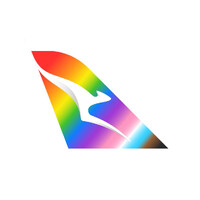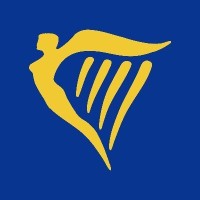
Düsseldorf Airport Company Cyber Security Posture
dus.comDer Düsseldorfer Airport ist der größte Flughafen Nordrhein-Westfalens. In einer der wirtschaftlich stärksten Regionen Europas mit 18 Millionen Einwohnern in einem Umkreis von 100 Kilometern gelegen, konzentriert sich hier der Luftverkehr der Rhein-Ruhr-Region. Zwar ist der Luftverkehr unsere Basis, aber nicht unser einziges Geschäftsfeld – und genau das macht unseren Flughafen und das Arbeitsumfeld so abwechslungsreich: Wir sind ebenso ein moderner Businesspark, ein Kongress- und Tagungsort, eine Erlebniswelt mit Shopping- und Gastro-Möglichkeiten und auch die größte Arbeitsstätte in der Region. Unser Anspruch: Destination of Excellence Diese Vision zeigt ganz klar unseren Weg und unseren Anspruch. Den Anspruch, dass sich Menschen auf uns verlassen können. Mit großem Engagement und hoher Qualität. Durch unsere strategischen Ziele, unserer Ambition, Ausdauer und nötigem Know-How wollen wir die Vision gemeinsam erreichen. Mehr Informationen gibt es hier: https://www.dus.com/de-de/konzern/unternehmen/unser-leitbild Aktuelle Stellenausschreibungen: https://www.dus.com/de-de/konzern/jobs
Düsseldorf Airport Company Details
dusairport
456 employees
11400
481
Airlines and Aviation
dus.com
Scan still pending
DÜS_2785612
In-progress
Between 900 and 1000
This score is AI-generated and less favored by cyber insurers, who prefer the TPRM score.
 Düsseldorf Airport Global Score
Düsseldorf Airport Global Score.png)

Düsseldorf Airport Company Scoring based on AI Models
| Model Name | Date | Description | Current Score Difference | Score |
|---|---|---|---|---|
| AVERAGE-Industry | 03-12-2025 | This score represents the average cybersecurity rating of companies already scanned within the same industry. It provides a benchmark to compare an individual company's security posture against its industry peers. | N/A | Between 900 and 1000 |
Düsseldorf Airport Company Cyber Security News & History
| Entity | Type | Severity | Impact | Seen | Url ID | Details | View |
|---|---|---|---|---|---|---|---|
| Düsseldorf Airport | Cyber Attack | 60 | 3 | 02/2023 | DSS3337823 | Link | |
Rankiteo Explanation : Attack with significant impact with internal employee data leaksDescription: A day after a massive IT breakdown at Lufthansa left 1000 of passengers stuck, the ADV airport organisation reported that the websites of seven German airports were targeted by a suspected cyber attack. Dusseldorf, Nuremberg, and Dortmund were among the airports that were impacted, but the websites for Germany's three largest airports—Frankfurt, Munich, and Berlin—were all functioning correctly. Airports were once again the target of widespread DDoS attacks, according to a statement from ADV CEO Ralph Beisel, who also noted that seven airports' websites were momentarily unavailable. Other systems are not affected, according to the report, and it is unclear how far the problem will spread to other areas. | |||||||
Düsseldorf Airport Company Subsidiaries

Der Düsseldorfer Airport ist der größte Flughafen Nordrhein-Westfalens. In einer der wirtschaftlich stärksten Regionen Europas mit 18 Millionen Einwohnern in einem Umkreis von 100 Kilometern gelegen, konzentriert sich hier der Luftverkehr der Rhein-Ruhr-Region. Zwar ist der Luftverkehr unsere Basis, aber nicht unser einziges Geschäftsfeld – und genau das macht unseren Flughafen und das Arbeitsumfeld so abwechslungsreich: Wir sind ebenso ein moderner Businesspark, ein Kongress- und Tagungsort, eine Erlebniswelt mit Shopping- und Gastro-Möglichkeiten und auch die größte Arbeitsstätte in der Region. Unser Anspruch: Destination of Excellence Diese Vision zeigt ganz klar unseren Weg und unseren Anspruch. Den Anspruch, dass sich Menschen auf uns verlassen können. Mit großem Engagement und hoher Qualität. Durch unsere strategischen Ziele, unserer Ambition, Ausdauer und nötigem Know-How wollen wir die Vision gemeinsam erreichen. Mehr Informationen gibt es hier: https://www.dus.com/de-de/konzern/unternehmen/unser-leitbild Aktuelle Stellenausschreibungen: https://www.dus.com/de-de/konzern/jobs
Access Data Using Our API

Get company history
.png)
Düsseldorf Airport Cyber Security News
Vodafone Advances Cybersecurity for Businesses in Germany
VOD opens a cybersecurity center in Germany to boost the cyber defense mechanism of small and mid-size businesses in the country.
Vodafone Staffs 100+ Experts in New Düsseldorf Cybersecurity Center
More than 100 cyber security experts will provide real-time threat analyses, preventive security services, and emergency response to minimize potential damage.
Germany probing possible security lapses after Christmas market attack
Germany searched on Monday for answers on possible security lapses after a man drove his car into a Christmas market, killing at least five people.
Vodafone Germany launches Cyber Security Centre for SMEs
The new Cyber Security Centre will help SMEs of all shapes and sizes to stay safe, by detecting cyber-attacks at an early stage and triggering ...
Companies, airlines scramble to recover after global IT outage disrupts business worldwide
Major U.S. airlines grounded flights, leading to global delays. As of Sunday morning, more than 980 flights flying to, from and within the U.S. ...
Kyndryl and Vodafone Business collaborate on new cyber security services
Kyndryl has expanded its partnership with Vodafone Business to enhance security and resiliency services for Vodafone's customers across the financial industry.
Fix found after Gulf airlines and passengers impacted by global IT outage
The UAE foreign ministry said the global cyber outage had affected some of its electronic systems and it advised users to avoid any transactions ...
The DDoS Attack on German Airport Websites and What IT Leaders Can Learn
The DDoS attack on the German airports follows a system outage on Jan. 11 in which all US domestic aircraft were grounded between 7:30 a.m. and ...
Julia Utzerath
Julia is a senior knowledge lawyer in the Intellectual Property/Information Technology group with a focus on digital transformation, AI and cybersecurity.

Düsseldorf Airport Similar Companies

Servisair
Servisair is a leading global provider of aviation ground services delivering an integrated range of handling solutions across 128 locations. We form part of the Derichebourg Group, which also has divisions in Corporate and Environmental Services, collectively employing 47,000 staff throughout 30

Etihad
Marhaba! Welcome to Etihad Airways. We are proud to be the national airline of the UAE, flying to Abu Dhabi or onwards to over 70 global destinations. Our passion is to help people reach unmissable places, where they’ll make unforgettable memories. Our aim is to provide our passengers with unbeata

dhmi
Türkiye Havaalanlarının işletilmesi ile Türkiye Hava sahasındaki hava trafiğinin düzenlenmesi ve kontrolü görevi, Devlet Hava Meydanları İşletmesi(DHMİ) Genel Müdürlüğünce yerine getirilmektedir. Türk Sivil Havacılık sektörünün altyapısını oluşturan tesis ve donanımıyla, 1933 yılından bu yana değ

Qantas
We would like to acknowledge the Traditional Custodians of the local lands and waterways on which we live, work and fly. We pay our respects to Elders past and present. Spirit is everything to us, and joining the Qantas team means bringing your spirit to ours. We have over 26,000 exceptional emplo

Ryanair - Europe's Favourite Airline
Ryanair Holdings plc, Europe’s largest airline group, is the parent company of Ryanair DAC, Lauda, Buzz and Ryanair UK. Carrying 160m+ guests p.a. on over 3,000 daily flights to/from 225 airports. Plan to carry 225m+ guests p.a. by 2026. Unfortunately, we are unable to answer customer service que

IndiGo (InterGlobe Aviation Ltd)
How time flies. #18YearsOfIndiGo IndiGo is India’s largest passenger airline. We primarily operate in India’s domestic air travel market as a low-cost carrier with focus on our three pillars – offering low fares, being on-time and delivering a courteous and hassle-free experience. IndiGo has become

Frequently Asked Questions (FAQ) on Cybersecurity Incidents
Düsseldorf Airport CyberSecurity History Information
Total Incidents: According to Rankiteo, Düsseldorf Airport has faced 1 incidents in the past.
Incident Types: The types of cybersecurity incidents that have occurred include ['Cyber Attack'].
Total Financial Loss: The total financial loss from these incidents is estimated to be {total_financial_loss}.
Cybersecurity Posture: The company's overall cybersecurity posture is described as Der Düsseldorfer Airport ist der größte Flughafen Nordrhein-Westfalens. In einer der wirtschaftlich stärksten Regionen Europas mit 18 Millionen Einwohnern in einem Umkreis von 100 Kilometern gelegen, konzentriert sich hier der Luftverkehr der Rhein-Ruhr-Region. Zwar ist der Luftverkehr unsere Basis, aber nicht unser einziges Geschäftsfeld – und genau das macht unseren Flughafen und das Arbeitsumfeld so abwechslungsreich: Wir sind ebenso ein moderner Businesspark, ein Kongress- und Tagungsort, eine Erlebniswelt mit Shopping- und Gastro-Möglichkeiten und auch die größte Arbeitsstätte in der Region. Unser Anspruch: Destination of Excellence Diese Vision zeigt ganz klar unseren Weg und unseren Anspruch. Den Anspruch, dass sich Menschen auf uns verlassen können. Mit großem Engagement und hoher Qualität. Durch unsere strategischen Ziele, unserer Ambition, Ausdauer und nötigem Know-How wollen wir die Vision gemeinsam erreichen. Mehr Informationen gibt es hier: https://www.dus.com/de-de/konzern/unternehmen/unser-leitbild Aktuelle Stellenausschreibungen: https://www.dus.com/de-de/konzern/jobs.
Detection and Response: The company detects and responds to cybersecurity incidents through {description_of_detection_and_response_process}.
Incident Details
Incident 1: Ransomware Attack
Title: {Incident_Title}
Description: {Brief_description_of_the_incident}
Date Detected: {Detection_Date}
Date Publicly Disclosed: {Disclosure_Date}
Date Resolved: {Resolution_Date}
Type: {Type_of_Attack}
Attack Vector: {Attack_Vector}
Vulnerability Exploited: {Vulnerability}
Threat Actor: {Threat_Actor}
Motivation: {Motivation}
Incident 2: Data Breach
Title: {Incident_Title}
Description: {Brief_description_of_the_incident}
Date Detected: {Detection_Date}
Date Publicly Disclosed: {Disclosure_Date}
Date Resolved: {Resolution_Date}
Type: {Type_of_Attack}
Attack Vector: {Attack_Vector}
Vulnerability Exploited: {Vulnerability}
Threat Actor: {Threat_Actor}
Motivation: {Motivation}
Common Attack Types: As of now, the company has not encountered any reported incidents involving common cyberattacks.
Identification of Attack Vectors: The company identifies the attack vectors used in incidents through {description_of_identification_process}.
Impact of the Incidents
Incident 1: Ransomware Attack
Financial Loss: {Financial_Loss}
Data Compromised: {Data_Compromised}
Systems Affected: {Systems_Affected}
Downtime: {Downtime}
Operational Impact: {Operational_Impact}
Conversion Rate Impact: {Conversion_Rate_Impact}
Revenue Loss: {Revenue_Loss}
Customer Complaints: {Customer_Complaints}
Brand Reputation Impact: {Brand_Reputation_Impact}
Legal Liabilities: {Legal_Liabilities}
Identity Theft Risk: {Identity_Theft_Risk}
Payment Information Risk: {Payment_Information_Risk}
Incident 2: Data Breach
Financial Loss: {Financial_Loss}
Data Compromised: {Data_Compromised}
Systems Affected: {Systems_Affected}
Downtime: {Downtime}
Operational Impact: {Operational_Impact}
Conversion Rate Impact: {Conversion_Rate_Impact}
Revenue Loss: {Revenue_Loss}
Customer Complaints: {Customer_Complaints}
Brand Reputation Impact: {Brand_Reputation_Impact}
Legal Liabilities: {Legal_Liabilities}
Identity Theft Risk: {Identity_Theft_Risk}
Payment Information Risk: {Payment_Information_Risk}
Average Financial Loss: The average financial loss per incident is {average_financial_loss}.
Commonly Compromised Data Types: The types of data most commonly compromised in incidents are {list_of_commonly_compromised_data_types}.
Incident 1: Ransomware Attack
Entity Name: {Entity_Name}
Entity Type: {Entity_Type}
Industry: {Industry}
Location: {Location}
Size: {Size}
Customers Affected: {Customers_Affected}
Incident 2: Data Breach
Entity Name: {Entity_Name}
Entity Type: {Entity_Type}
Industry: {Industry}
Location: {Location}
Size: {Size}
Customers Affected: {Customers_Affected}
Response to the Incidents
Incident 1: Ransomware Attack
Incident Response Plan Activated: {Yes/No}
Third Party Assistance: {Yes/No}
Law Enforcement Notified: {Yes/No}
Containment Measures: {Containment_Measures}
Remediation Measures: {Remediation_Measures}
Recovery Measures: {Recovery_Measures}
Communication Strategy: {Communication_Strategy}
Adaptive Behavioral WAF: {Adaptive_Behavioral_WAF}
On-Demand Scrubbing Services: {On_Demand_Scrubbing_Services}
Network Segmentation: {Network_Segmentation}
Enhanced Monitoring: {Enhanced_Monitoring}
Incident 2: Data Breach
Incident Response Plan Activated: {Yes/No}
Third Party Assistance: {Yes/No}
Law Enforcement Notified: {Yes/No}
Containment Measures: {Containment_Measures}
Remediation Measures: {Remediation_Measures}
Recovery Measures: {Recovery_Measures}
Communication Strategy: {Communication_Strategy}
Adaptive Behavioral WAF: {Adaptive_Behavioral_WAF}
On-Demand Scrubbing Services: {On_Demand_Scrubbing_Services}
Network Segmentation: {Network_Segmentation}
Enhanced Monitoring: {Enhanced_Monitoring}
Incident Response Plan: The company's incident response plan is described as {description_of_incident_response_plan}.
Third-Party Assistance: The company involves third-party assistance in incident response through {description_of_third_party_involvement}.
Data Breach Information
Incident 2: Data Breach
Type of Data Compromised: {Type_of_Data}
Number of Records Exposed: {Number_of_Records}
Sensitivity of Data: {Sensitivity_of_Data}
Data Exfiltration: {Yes/No}
Data Encryption: {Yes/No}
File Types Exposed: {File_Types}
Personally Identifiable Information: {Yes/No}
Prevention of Data Exfiltration: The company takes the following measures to prevent data exfiltration: {description_of_prevention_measures}.
Handling of PII Incidents: The company handles incidents involving personally identifiable information (PII) through {description_of_handling_process}.
Ransomware Information
Incident 1: Ransomware Attack
Ransom Demanded: {Ransom_Amount}
Ransom Paid: {Ransom_Paid}
Ransomware Strain: {Ransomware_Strain}
Data Encryption: {Yes/No}
Data Exfiltration: {Yes/No}
Ransom Payment Policy: The company's policy on paying ransoms in ransomware incidents is described as {description_of_ransom_payment_policy}.
Data Recovery from Ransomware: The company recovers data encrypted by ransomware through {description_of_data_recovery_process}.
Regulatory Compliance
Incident 1: Ransomware Attack
Regulations Violated: {Regulations_Violated}
Fines Imposed: {Fines_Imposed}
Legal Actions: {Legal_Actions}
Regulatory Notifications: {Regulatory_Notifications}
Incident 2: Data Breach
Regulations Violated: {Regulations_Violated}
Fines Imposed: {Fines_Imposed}
Legal Actions: {Legal_Actions}
Regulatory Notifications: {Regulatory_Notifications}
Regulatory Frameworks: The company complies with the following regulatory frameworks regarding cybersecurity: {list_of_regulatory_frameworks}.
Ensuring Regulatory Compliance: The company ensures compliance with regulatory requirements through {description_of_compliance_measures}.
Lessons Learned and Recommendations
Incident 1: Ransomware Attack
Lessons Learned: {Lessons_Learned}
Incident 2: Data Breach
Lessons Learned: {Lessons_Learned}
Incident 1: Ransomware Attack
Recommendations: {Recommendations}
Incident 2: Data Breach
Recommendations: {Recommendations}
Key Lessons Learned: The key lessons learned from past incidents are {list_of_key_lessons_learned}.
Implemented Recommendations: The company has implemented the following recommendations to improve cybersecurity: {list_of_implemented_recommendations}.
References
Additional Resources: Stakeholders can find additional resources on cybersecurity best practices at {list_of_additional_resources}.
Investigation Status
Incident 1: Ransomware Attack
Investigation Status: {Investigation_Status}
Incident 2: Data Breach
Investigation Status: {Investigation_Status}
Communication of Investigation Status: The company communicates the status of incident investigations to stakeholders through {description_of_communication_process}.
Stakeholder and Customer Advisories
Incident 1: Ransomware Attack
Stakeholder Advisories: {Stakeholder_Advisories}
Customer Advisories: {Customer_Advisories}
Incident 2: Data Breach
Stakeholder Advisories: {Stakeholder_Advisories}
Customer Advisories: {Customer_Advisories}
Advisories Provided: The company provides the following advisories to stakeholders and customers following an incident: {description_of_advisories_provided}.
Initial Access Broker
Incident 1: Ransomware Attack
Entry Point: {Entry_Point}
Reconnaissance Period: {Reconnaissance_Period}
Backdoors Established: {Backdoors_Established}
High Value Targets: {High_Value_Targets}
Data Sold on Dark Web: {Yes/No}
Incident 2: Data Breach
Entry Point: {Entry_Point}
Reconnaissance Period: {Reconnaissance_Period}
Backdoors Established: {Backdoors_Established}
High Value Targets: {High_Value_Targets}
Data Sold on Dark Web: {Yes/No}
Monitoring and Mitigation of Initial Access Brokers: The company monitors and mitigates the activities of initial access brokers through {description_of_monitoring_and_mitigation_measures}.
Post-Incident Analysis
Incident 1: Ransomware Attack
Root Causes: {Root_Causes}
Corrective Actions: {Corrective_Actions}
Incident 2: Data Breach
Root Causes: {Root_Causes}
Corrective Actions: {Corrective_Actions}
Post-Incident Analysis Process: The company's process for conducting post-incident analysis is described as {description_of_post_incident_analysis_process}.
Corrective Actions Taken: The company has taken the following corrective actions based on post-incident analysis: {list_of_corrective_actions_taken}.
Additional Questions
General Information
Ransom Payment History: The company has {paid/not_paid} ransoms in the past.
Last Ransom Demanded: The amount of the last ransom demanded was {last_ransom_amount}.
Last Attacking Group: The attacking group in the last incident was {last_attacking_group}.
Incident Details
Most Recent Incident Detected: The most recent incident detected was on {most_recent_incident_detected_date}.
Most Recent Incident Publicly Disclosed: The most recent incident publicly disclosed was on {most_recent_incident_publicly_disclosed_date}.
Most Recent Incident Resolved: The most recent incident resolved was on {most_recent_incident_resolved_date}.
Impact of the Incidents
Highest Financial Loss: The highest financial loss from an incident was {highest_financial_loss}.
Most Significant Data Compromised: The most significant data compromised in an incident was {most_significant_data_compromised}.
Most Significant System Affected: The most significant system affected in an incident was {most_significant_system_affected}.
Response to the Incidents
Third-Party Assistance in Most Recent Incident: The third-party assistance involved in the most recent incident was {third_party_assistance_in_most_recent_incident}.
Containment Measures in Most Recent Incident: The containment measures taken in the most recent incident were {containment_measures_in_most_recent_incident}.
Data Breach Information
Most Sensitive Data Compromised: The most sensitive data compromised in a breach was {most_sensitive_data_compromised}.
Number of Records Exposed: The number of records exposed in the most significant breach was {number_of_records_exposed}.
Ransomware Information
Highest Ransom Demanded: The highest ransom demanded in a ransomware incident was {highest_ransom_demanded}.
Highest Ransom Paid: The highest ransom paid in a ransomware incident was {highest_ransom_paid}.
Regulatory Compliance
Highest Fine Imposed: The highest fine imposed for a regulatory violation was {highest_fine_imposed}.
Most Significant Legal Action: The most significant legal action taken for a regulatory violation was {most_significant_legal_action}.
Lessons Learned and Recommendations
Most Significant Lesson Learned: The most significant lesson learned from past incidents was {most_significant_lesson_learned}.
Most Significant Recommendation Implemented: The most significant recommendation implemented to improve cybersecurity was {most_significant_recommendation_implemented}.
References
Most Recent Source: The most recent source of information about an incident is {most_recent_source}.
Most Recent URL for Additional Resources: The most recent URL for additional resources on cybersecurity best practices is {most_recent_url}.
Investigation Status
Current Status of Most Recent Investigation: The current status of the most recent investigation is {current_status_of_most_recent_investigation}.
Stakeholder and Customer Advisories
Most Recent Stakeholder Advisory: The most recent stakeholder advisory issued was {most_recent_stakeholder_advisory}.
Most Recent Customer Advisory: The most recent customer advisory issued was {most_recent_customer_advisory}.
Initial Access Broker
Most Recent Entry Point: The most recent entry point used by an initial access broker was {most_recent_entry_point}.
Most Recent Reconnaissance Period: The most recent reconnaissance period for an incident was {most_recent_reconnaissance_period}.
Post-Incident Analysis
Most Significant Root Cause: The most significant root cause identified in post-incident analysis was {most_significant_root_cause}.
Most Significant Corrective Action: The most significant corrective action taken based on post-incident analysis was {most_significant_corrective_action}.
What Do We Measure?
















Every week, Rankiteo analyzes billions of signals to give organizations a sharper, faster view of emerging risks. With deeper, more actionable intelligence at their fingertips, security teams can outpace threat actors, respond instantly to Zero-Day attacks, and dramatically shrink their risk exposure window.
These are some of the factors we use to calculate the overall score:
Identify exposed access points, detect misconfigured SSL certificates, and uncover vulnerabilities across the network infrastructure.
Gain visibility into the software components used within an organization to detect vulnerabilities, manage risk, and ensure supply chain security.
Monitor and manage all IT assets and their configurations to ensure accurate, real-time visibility across the company's technology environment.
Leverage real-time insights on active threats, malware campaigns, and emerging vulnerabilities to proactively defend against evolving cyberattacks.




